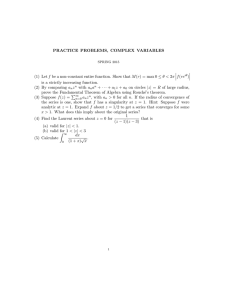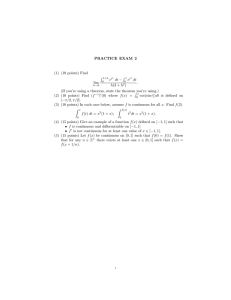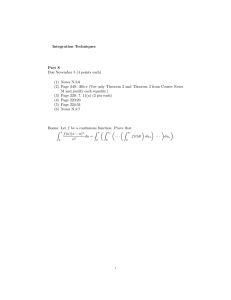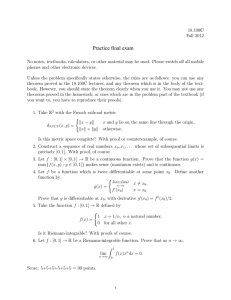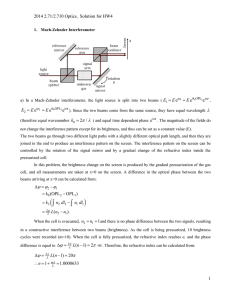18.100C Lecture 11 Summary
advertisement
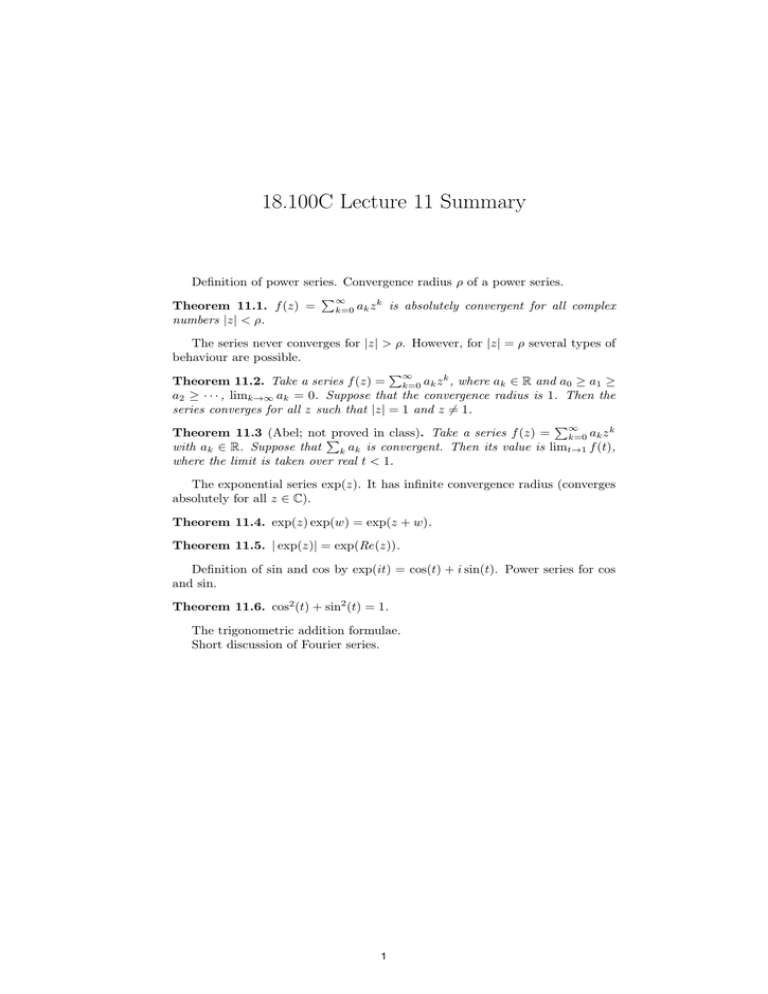
18.100C Lecture 11 Summary Definition of power series. Convergence radius ρ of a power series. Theorem 11.1. f (z) = numbers |z| < ρ. ∞ k=0 ak z k is absolutely convergent for all complex The series never converges for |z| > ρ. However, for |z| = ρ several types of behaviour are possible. ∞ Theorem 11.2. Take a series f (z) = k=0 ak z k , where ak ∈ R and a0 ≥ a1 ≥ a2 ≥ · · · , limk→∞ ak = 0. Suppose that the convergence radius is 1. Then the series converges for all z such that |z | = 1 and z = 1. ∞ Theorem 11.3 (Abel; not proved in class). Take a series f (z) = k=0 ak z k with ak ∈ R. Suppose that k ak is convergent. Then its value is limt→1 f (t), where the limit is taken over real t < 1. The exponential series exp(z). It has infinite convergence radius (converges absolutely for all z ∈ C). Theorem 11.4. exp(z) exp(w) = exp(z + w). Theorem 11.5. | exp(z)| = exp(Re(z)). Definition of sin and cos by exp(it) = cos(t) + i sin(t). Power series for cos and sin. Theorem 11.6. cos2 (t) + sin2 (t) = 1. The trigonometric addition formulae. Short discussion of Fourier series. 1 MIT OpenCourseWare http://ocw.mit.edu 18.100C Real Analysis Fall 2012 For information about citing these materials or our Terms of Use, visit: http://ocw.mit.edu/terms.

